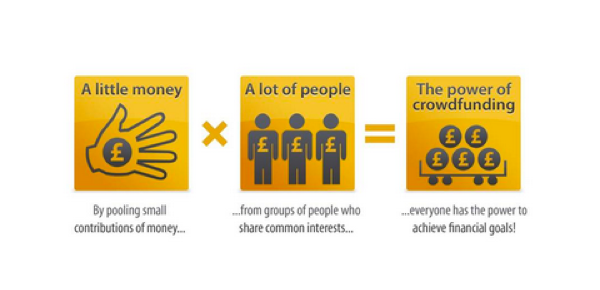SEBI, Securities market controller Securities & Exchange Board of India has concocted draft recommendations to crowdfunding in India. The controller has sorted three sorts of crowdfunding value based (Ebc), obligation based (Dbc) and trust based (Fbc).
pull in cash from most extreme of 200 individual speculators, organizers or promoters need to keep up at least 5% in the organization for no less than three years from the date of the issue other than permitting another funding: AIF, who can pool in cash from different financial specialists to put resources into an organization.
All the certify investors put resources into these trusts. The cash will be then put by Crowd Fund Aifs into new businesses and Sme’s. They maintain interest of no less than 2.5% for every penny of the corpus as venture in the fund.
For accepting donation from the enrolled investors, the base for every capita financing could be set at Rs 50,000. These classification AIF fund should enrol with SEBI under the SEBI (AIF) Regulations. They will be liable to same divulgences and valuation as other investors.
Who can invest through Crowdfunding
Firms that can invest, basically are Eligible retail investors (ERI) or qualified institutional purchasers, are only eligible when firms with least assets of Rs 20 crores, or net assets of Rs 2 crores can invest. These other qualified speculators need to be breezed through a suitability test which may be directed by an organization authorize by NISM.
Such retail speculators or Eris, would additionally need to have a least of Rs 10 lakhs as yearly wage, recorded IT returns throughout the previous three years and ensure that they won’t put more than Rs 60,000 and that they won’t contribute more than 10% of total assets.
Ebc and Dbc might permit private arrangement offers through web based crowdfunding stages to any number of Qibs and a most extreme of 200 Hnis and Eris together.
Conditions of Investment
The first and foremost condition is that the Eligible investor must be an Indian citizen or can be an NRI. The investors must sign a ‘Risk Acknowledgement’ that they comprehend the danger of Liquid investment and its losses. The issue must be in demat structure. The investment can be made through a check or draft or an alternate bank account. Cash or credit card payments are not accepted.
Who can raise cash through crowdfunding
The crowdfunding would be confined to max of Rs 10 crores in a time of 12 months. Organizations which mean to make greater issue can rundown on one of the SME stages. It should not utilize numerous crowdfunding stages. One should not straightforwardly publicize their offering.
Organization raising crowdfunding ought not be supported or identified with an Industrial organization which has a turnover in overabundance of Rs 25 crores with least four-years of age. Such firms shouldn’t raise cash to contribute it further. Firms occupied with Property and other banned activities won’t be permitted to proceed. The promoters ought not be defaulters previously.
Procedure and statements
The crowdfunding issue should stay open for a greatest time of 15 days and it will be viewed as fruitful only if it can accomplish a base limit, if not then the amount is refunded.

